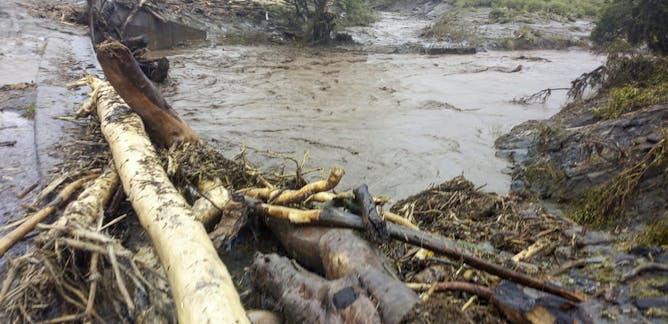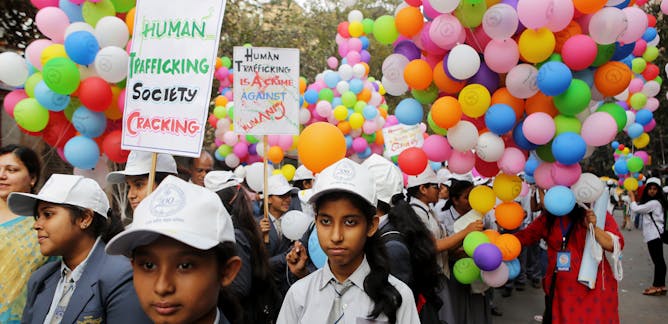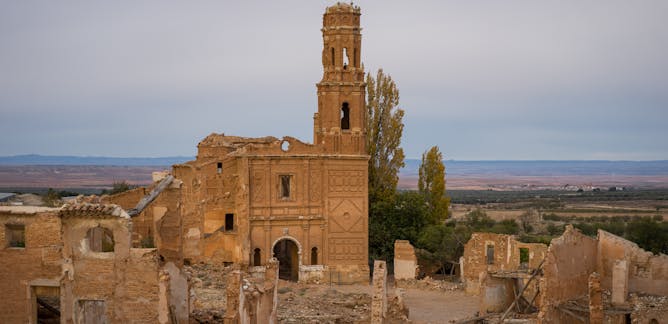|
While the world grapples with the deadly novel coronavirus COVID-19, a different but familiar disease appears to be quietly spreading across Nigeria. Lassa fever was first diagnosed in 1969. New cases have arisen every year since, with an escalation in the last two years in particular. This has prompted the Nigerian Academy of Science to call for a national public health emergency to be declared. Doyin Odubanjo explains the academy’s
stance.
A large-scale HIV vaccine trial being carried out in South Africa was recently discontinued because it was found not to prevent HIV infections. Though scientists are disappointed, this was only one of about 40 HIV vaccine candidates on trial globally today. Anatoli Kamali unpacks the work being done in search of an effective HIV vaccine.
|

Alarmed by a rapid spread of Lassa fever, the Nigerian Academy of Science is calling on government to declare a health emergency.
Pius Utomi Ekpei/AFP via Getty Images
Doyin Odubanjo, Nigerian Academy of Science
Concerned about rising cases and spread of Lassa fever, the Nigerian Academy of Science has called on government to declare it a national health emergency.
|

New HIV infections remain high.
Shutterstock
Anatoli Kamali, London School of Hygiene & Tropical Medicine
The key to ending the HIV epidemic is a vaccine that will provide long-lasting protection and alleviate the need for prevention methods.
|
Politics
|

Jacob Nyarko, University of Cape Coast
The most popular broadcast medium in Ghana has gone through a politically fuelled evolution that has strengthened it.
| |

Melinda Du Toit, University of Johannesburg
Unemployed people in South Africa suffer acute distress and more needs to be done to give them social support.
|
|
|
Science + Technology
|

Jennifer Fitchett, University of the Witwatersrand
The unusual weather can be attributed to the Indian Ocean Dipole. This is the difference in sea surface temperatures between the eastern and western tropical Indian Ocean.
| |

George Busby, University of Oxford
Early humans in Africa may have interbred with a ghost population that likely split from the ancestors of humans and Neanderthals between 360,000 and 1.02 million years ago.
|
|
|
From our international editions
|

Katarina Schwarz, University of Nottingham; Jean Allain, University of Hull
There are no criminal provisions around slavery in 47% of world nations, groundbreaking new legal research finds.
| |

Philip Donkersley, Lancaster University
A new study has found that European and North American bumblebee populations have shrank by a third since 1970.
|

Claire Hooker, University of Sydney
What's the best way to tackle coronavirus myths and misinformation if they come up in everyday conversation?
| |

Parashkev Nachev, UCL
When it comes to love, science has not yet got it right. And there's a wonderful reason why.
|
|
|
En Français
|

Rodolphe Gozlan, Institut de recherche pour le développement (IRD); Soushieta Jagadesh, Institut de recherche pour le développement (IRD)
Ebola, Nipah, SRAS, fièvre de Lassa, Covid-19, Zika… Transmises par les animaux, ces dangereuses maladies ont toutes émergé récemment. Pourquoi ? Une future épidémie d’ampleur est-elle à craindre ?
| |

Ivanne Galant, Université Sorbonne Paris Nord – USPC
L’expérience. Ce terme est sur les lèvres de tous les spécialistes du marketing touristique. Mais faut-il associer l’expérience aux événements traumatiques de l’histoire ?
|
|
|